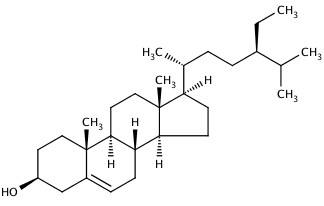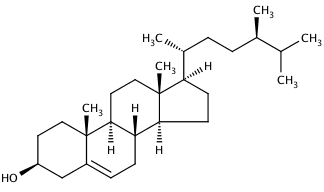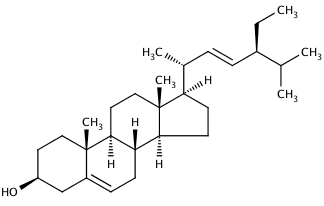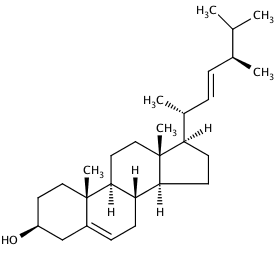HSF Phytosterols are extracted from non-GMO soy oil. They have a similar chemical structure to cholesterol, but are different in the carbon atom no. 17. HSF offers two grades of Phytosterols 95% and Phytosterol Esters 98%.
Usage
Phytosterols and their esters are used in following applications:
- in functional foods to lower blood cholesterol
- as antioxidant in food and cosmetics
- as skin moisturiser in cosmetics
- as source material for the sterol- and vitamin D3 synthesis
Also its positive effect on skin hydration is well known and is used in several renowned cosmetic products. Interestingly, the chemical composition of Phytosterols shows similarities to those found in Lanolin. Thus, Phytosterols can be used as vegetable alternative to lanolin.
Phytosterols 95%
HSF Phytosterols 95% is a white powder containing mainly the plant sterols β-Sitosterol (≥40%), Stigmasterol (15%-30%) and Campesterol (15%-30%). Brassicasterol content is below 10%.
 |
 |
| β-Sitosterol | Campesterol |
 |
 |
| Stigmasterol | Brassicasterol |
Phytosterol Esters 98%
HSF Phytosterol Esters has a minimum content of sterol esters of 98% and contain a maximum of 2% free sterols. In contrast to free sterols, the esters exhibit a pasty texture at room temperature and can be easily liquefied by gentle warming. They are well soluble in oil and are less susceptible to oxidation compared to the free Phytosterols. This is mostly due to the paste-like texture having a lower surface area that lower its reactivity with oxygen, as compared to the powder form. Therefore Phytosterol Esters can be stored at room temperature.
| Brochure Phytosterols | |
| MSDS Phytosterols | |
| MSDS Phytosterol Esters |
Links
Phytosterole in Kosmetika
β-Sitosterol
Phytosterole in Lebensmitteln


